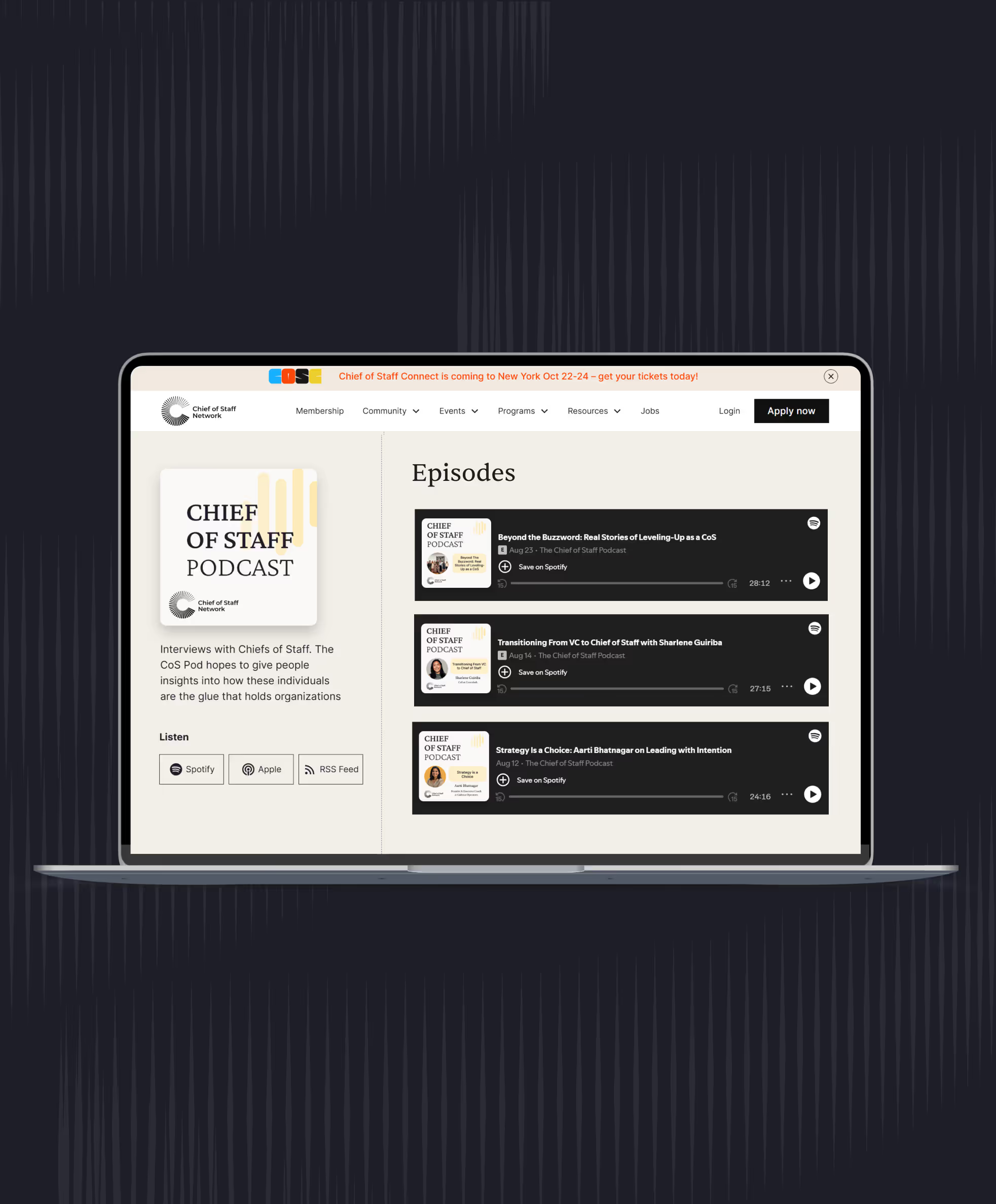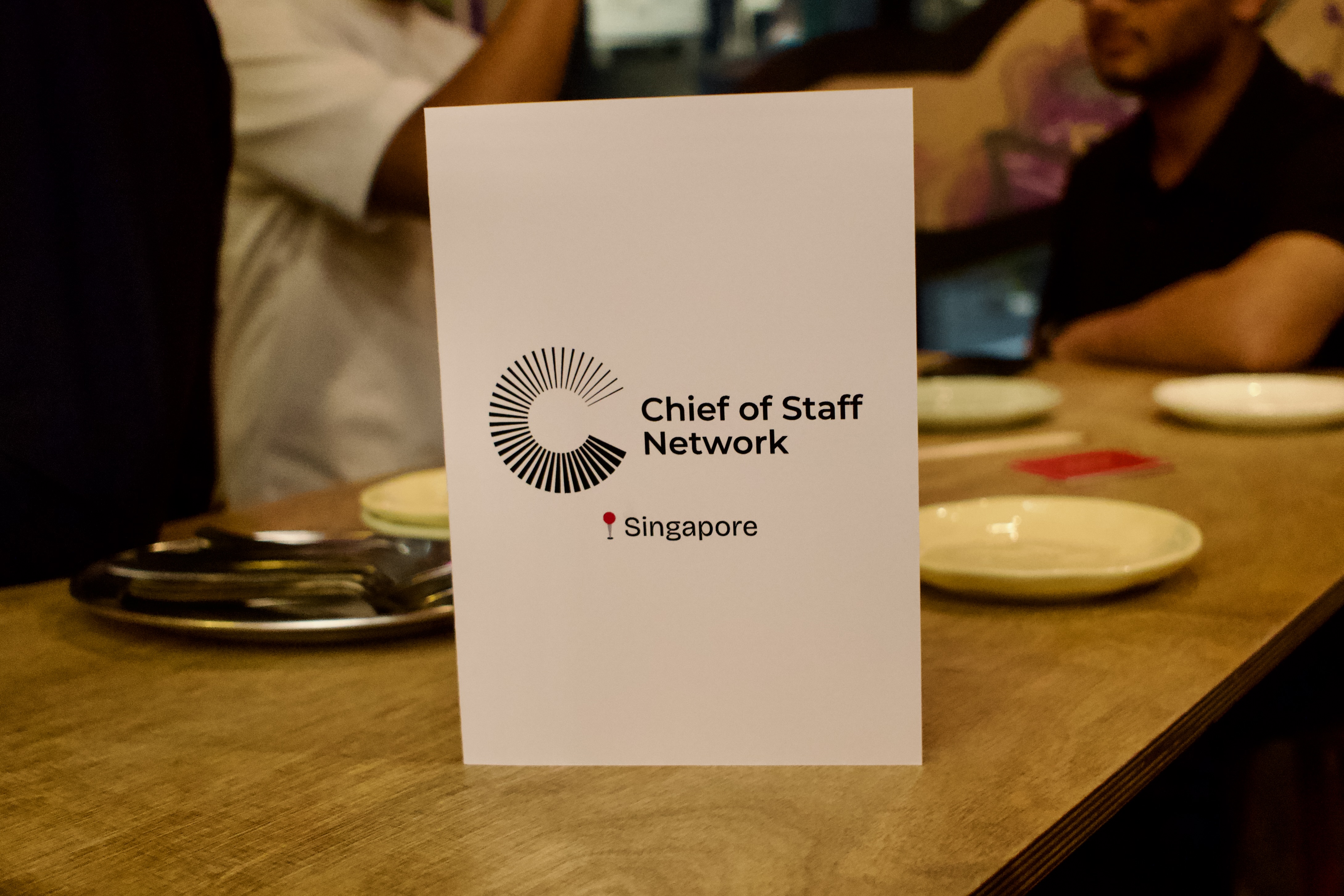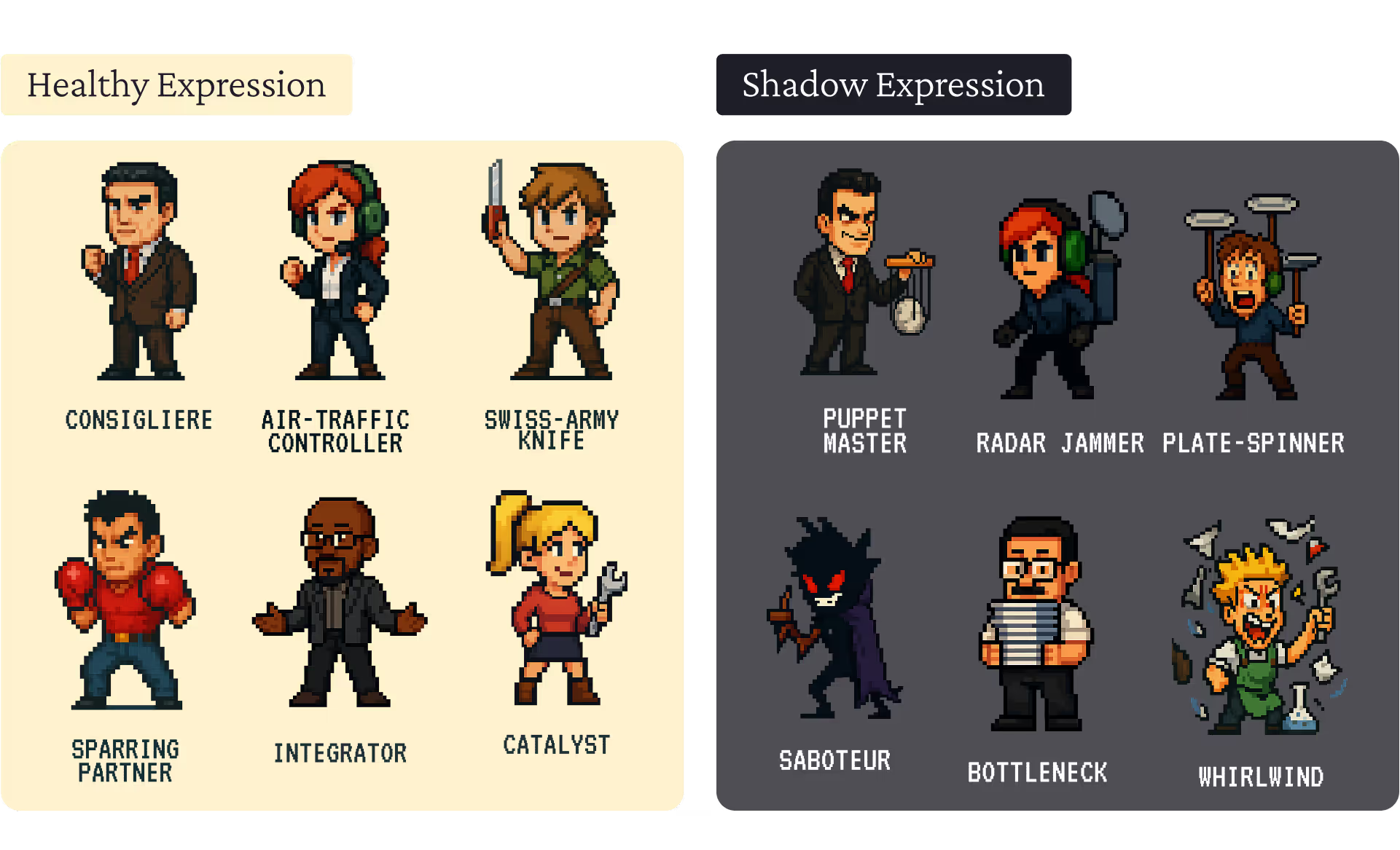Our first Clubhouse chat was led by an exceptional group of current and former Chiefs of Staff from tech, media and venture capital organizations. Follow the Chief of Staff Network club on Clubhouse to get updates on future events.
Speakers included:
Vedika Jain, CoS at Weekend Fund
Doug Bernard, CoS at InHome
David Burt, former Cos at Atlantic Media
Christian Keil, CoS at Astranis
Megan Wheeler, CoS at Moves Financial
Sibi Murugesan, CoS at Earnest Capital
Scott Amenta, former CoS at Spring & founder of Chief of Staff Network
Here are some of the highlights from the discussion!
On comparing CoS roles to executive assistant positions —
“The way I would describe the Chief of Staff role is that it operates on a spectrum - from EA at one end to CEO at the other. People are confused about the Chief of Staff role because people also don't really know what CEOs do.” - Christian Keil
“I wrote an article on elpha.com a few months ago about being a ‘master generalist’. I think I had a lot of imposter syndrome for a long time. The message out there was you have to specialize to get ahead in your career. I just resisted that and then I really leaned into being a generalist. I work very closely with the EA, as she takes on much of the admin responsibilities I may otherwise forget about. For me, I’m able to take on projects across Legal, HR, Finance, special projects, and more. I could not do that without the EA.” - Megan Wheeler
On the skills necessary to do the CoS job well —
“I was a product manager, before I was a Chief of Staff. I think being a PM actually set me up extremely well to be a Chief of Staff. Being like a prioritisation machine is really important. Also being able to influence without that authority or without credit seeking - both skills have served me very well.” Vedika Jain
“Being a good listener. You want to be the person that folks will share things with — things that are going well and things that aren't going well.” - Christian Keil
“I think another great skill set is prioritisation. It's almost like our GP founder outsources prioritisation to me as a person. You can really spend the time looking across the org and create a set of priorities for your Principal based on company priorities, objectives, strategies.” - Sibi Murugesan
On day-to-day responsibilities —
“I find with this role and what I like most about it most about it is the variety. You may be doing something very strategic, very high level that has a lot of impact. And then you can be doing something really technical or really execution based that is sort of like low risk, low impact and it could just be like a small kind of fun project. Everyday is different.” - Megan Wheeler
“At a quickly growing company, where team sizes are doubling annually, the operating models that those companies lived by end up needing to be replaced. A Chief of Staff can be really good as a relentless advocate for better processes and thinking more strongly about how growing teams can communicate better with one another. - Scott Amenta
On our path to CoS roles —
“The path is typically winding. I worked in investment banking for four years and then I left to start two small businesses. A couple years later, I was looking around at jobs because I wanted to learn what a CEO did and just join a scaling organisation. I found that I just didn't fit in any of the jobs that were out there and I didn't really want to specialise.” - Doug Bernard
“One thing about finding the right Chief of Staff role is finding the principal who matches what you're able to provide so you are able to contribute to one another. My manager and I had a good working relationship already and that's why it made sense for me to jump into the Chief of Staff role.” - David Burt
“When you start as a Chief of Staff, you need to build credibility. I was so grateful to have been raised up within Astranis. I already had working relationships with everyone and had proven to them that I was a competent human and wouldn’t ruin the company if entrusted with projects that mattered. Building credibility is likely very different for someone recruited into the role from outside the company.” - Christian Keil
"Don't be afraid to go try to make your role, make the case for who you think you should be the Chief of Staff for. My Pro Tip is make sure you drive with the value first. I always pitch in when I pitch it to Tyler, our founder - here's why I think we need the Chief of Staff for you and the company." - Sibi Murugesan
"We all do different things, have different backgrounds and different experiences. What skill set do you have as an employee that brings the value that your company needs? You need to find this mutual fit." - Megan Wheeler
On landing a Chief of Staff role —
"Ask your Principal - what they wished they had more time for and also, what are things they wish they didn't have to do? You can paint a picture for them of a better future state. Where if you're taking that on or creating processes around those things." - David Burt
"Volunteer to take on the side of desk jobs that the CEO has (e.g. item #20 on the priority list). Something important that needs to be done. Do it well, prove you can add value and be self-sufficient so that you can work yourself into that kind of role." - Megan Wheeler
"1.) Find the right channels that will have these one-off positions - newsletters, job boards, etc. 2.) Certain recruiters focus on this, get in touch with them. 3.) Also getting introduced to CEO’s / Principals and being the one to pitch the role is a good path in." - Doug Bernard
"Do the work before you have the job. Make a list of the 20-30 execs you would drop everything to work for. Consume everything you can find about them to get a sense of the problems they encounter to start the relationship building. This is the longer path, but I’m an advocate of this approach." - Vedika Jain
"Start in a position with experience that you have (e.g. marketing) and then work your way over to an operational department. Build the case for the Chief of Staff role internally as you build relationships and prove you have the right transferable skills." - Megan Wheeler
On getting started and measuring our success in the role —
"Read the book first 90 days - helps to plan out some of the things you want to do like joining a lot of meetings to learn and absorb what’s going on in the company." -Megan Wheeler
"Over-communicate with the principal - define up front how you think it should work and treat it as an experiment that you’re working on together. Over time come back and see which parts make sense or better align on what you’re trying to achieve." - David Burt
"Lay out a success criteria plan for yourself to get a clear sense of what you need to do to success in the role. Use a mix of objective and subjective OKR’s (e.g. has your Principal enjoyed working with you?)." - Vedika Jain
On thinking about career paths —
"You hone certain skills while you’re in this position, but you need to progress onto something else. I find that there are a lot of paths you can take after CoS - that could be strategy, operations, product. The role itself is defined by the individual and the role afterwards is defined by the skills you want to continue developing." - Doug Bernard






.avif)
.avif)








